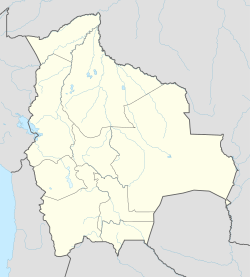
Zambo or Sambu is a racial term historically used in the Spanish Empire to refer to people of mixed Amerindian and African ancestry. Occasionally in the 21st century, the term is used in the Americas to refer to persons who are of mixed African and Native American ancestry.
Afro–Latin Americans or Black Latin Americans are Latin Americans who claim begin of full or mainly sub-Saharan African ancestry. Biologically, a significant majority of population in each country have african genes.
Afro-Caribbean music is a broad term for music styles originating in the Caribbean from the African diaspora. These types of music usually have West African/Central African influence because of the presence and history of African people and their descendants living in the Caribbean, as a result of the trans-Atlantic slave trade. These distinctive musical art forms came about from the cultural mingling of African, Indigenous, and European inhabitants. Characteristically, Afro-Caribbean music incorporates components, instruments and influences from a variety of African cultures, as well as Indigenous and European cultures.
Albert Jordy Raboteau II was an American scholar of African and African-American religions. Since 1982, he had been affiliated with Princeton University, where he was Henry W. Putnam Professor of Religion.
The Morenada is an Andean folk dance whose origins are still under debate. This dance is practiced mainly in Bolivia as well as in Peru and in recent years with Bolivian immigration in Chile, Argentina and other countries.

Afro-Bolivians are Bolivian people of Sub-Saharan African heritage and therefore the descriptive "Afro-Bolivian" may refer to historical or cultural elements in Bolivia thought to emanate from their community. It can also refer to the combining of African and other cultural elements found in Bolivian society such as religion, music, language, the arts, and class culture. The Afro-Bolivians are recognized as one of the constituent ethnic groups of Bolivia by the country's government, and are ceremonially led by a king who traces his descent back to a line of monarchs that reigned in Africa during the medieval period. They numbered 23,000 according to the 2012 census.
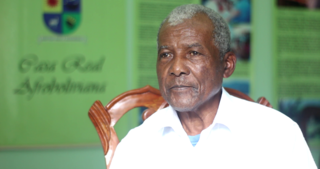
}}
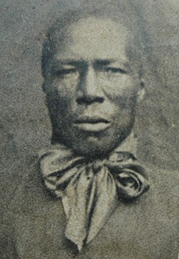
DonBonifacio Pinedo was the King of the Afro-Bolivians from 1932 to 1954. As the ceremonial king, he presided over religious festivities celebrating Saint Benedict the Moor and was responsible for matchmaking in the Afro-Bolivian community. His role was suppressed during the Bolivian National Revolution.

Afro-Venezuelans are Venezuelans of African descent. Afro-Venezuelans are mostly descendants of enslaved Africans brought to the Western Hemisphere during the Atlantic slave trade. This term also sometimes refers to the combining of African and other cultural elements found in Venezuelan society such as the arts, traditions, music, religion, race, and language.
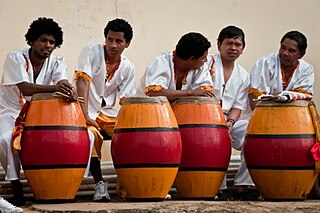
Afro-Paraguayans are Paraguayans who have predominantly or total Sub-Saharan African ancestry. They can be found in Camba Cua outside Asuncion; Kamba Kokue outside Paraguari, and the city of Emboscada.
Yoruba Americans are Americans of Yoruba descent. The Yoruba people are a West African ethnic group that predominantly inhabits southwestern Nigeria, with smaller indigenous communities in Benin and Togo.

The Atlantic slave trade to Brazil occurred during the period of history in which there was a forced migration of Africans to Brazil for the purpose of slavery. It lasted from the mid-sixteenth century until the mid-nineteenth century. During the trade, more than three million Africans were transported across the Atlantic and sold into slavery. It was divided into four phases: The cycle of Guinea ; the cycle of Angola which trafficked people from Bakongo, Mbundu, Benguela, and Ovambo; cycle of Costa da Mina, now renamed Cycle of Benin and Dahomey, which trafficked people from Yoruba, Ewe, Minas, Hausa, Nupe, and Borno; and the illegal trafficking period, which was suppressed by the United Kingdom (1815–1851). During this period, to escape the supervision of British ships enforcing an anti-slavery blockade, Brazilian slave traders began to seek alternative routes to the routes of the West African coast, turning to Mozambique.

The Afro-Bolivian Royal House is a ceremonial monarchy recognized as part of the Plurinational State of Bolivia, which does not interfere with the system of the Presidential republic in force within the country. It was established in 1823 with the coronation of King Uchicho and is centered in Mururata, a village in the Yungas region of Bolivia. The monarchy is treated as a customary leader of the Afro-Bolivian community. The powers of the Afro-Bolivian king are similar to those of a traditional king, representing the Afro-Bolivian community. The current Afro-Bolivian monarchs are King Julio Pinedo and Queen Angélica Larrea.
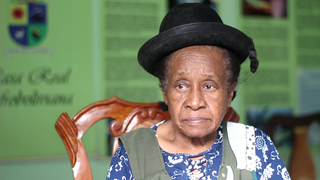
DoñaAngélica Larrea de Pinedo is the Ceremonial Queen of the Afro-Bolivians, as the wife of Ceremonial King Julio Pinedo. She twice served as the mayor of Mururata.

DoñaAurora Pinedo was the Princess Regent of the Afro-Bolivians from 1954 to 1992. As her father, Bonifacio I, had no male heirs, she succeeded him as princess regent following his death in 1954.
DonRolando Julio Pinedo y Larrea, Crown Prince of the Afro-Bolivians is a Bolivian lawyer and a member of the Afro-Bolivian royal family. He is the current heir to the Afro-Bolivian throne and Grand Chancellor of Africa of the Royal Order of Merit of Prince Uchicho
Uchico was the first King of the Afro-Bolivians. He was captured and brought to Bolivia as a slave around 1820. He was crowned as Afro-Bolivian king in 1823.
